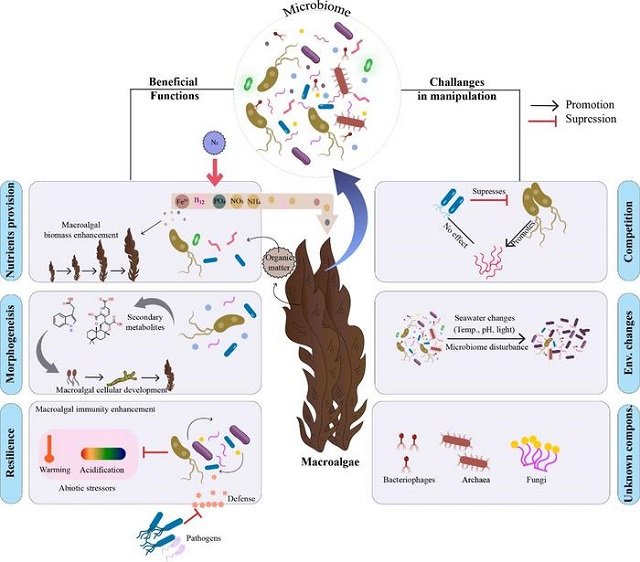Biddeford, USA.- Barry Costa-Pierce, Ph.D., Henry L. & Grace Doherty Professor of Marine Sciences, and David Fredriksson, Ph.D., professor at the United States Naval Academy and an adjunct research professor at UNE, attended and presented at the U.S. Department of Energy Macroalgae Research Inspiring Novel Energy Resources (MARINER) kick-off meetings in Long Beach California, which were held January 16 to 18.
MARINER is the newest addition to the Department of Energy’s Advanced Research Projects Agency-Energy (ARPA-E) program, which supports the United States’ commitment to promoting and funding research and development of advanced energy technologies. The MARINER program will provide $22 million to fund 18 nationwide projects that seek to develop the tools critical to allowing the U.S. to emerge as a world leader in the production of marine biomasses, such as macroalgae, or seaweed. Macroalgae is primarily used directly as food for human consumption, but there is a growing opportunity for the production of it for use as fuel, chemical feedstocks and animal feeds.
MARINER project teams will develop technologies capable of providing economically viable, renewable biomass for energy applications that do not compete for valuable dry land. These projects are divided into five categories, each part of a suite of technologies necessary to reduce capital and operating costs and enable significantly larger farm sizes and areas of deployment. MARINER teams and their partners cover a wide array of technical disciplines and geographical zones, offering a comprehensive, portfolio approach to advancing this early-stage technology area.
With Costa-Pierce and Fredriksson as co-principal investigators, UNE received one of the largest projects in “Category III: Design & Testing of Computational Modeling Tools” and will develop over the next 3 years a fine-tuned 3D modeling tool to simulate oceanic stresses on seaweed cultivation systems and will expand the University’s seaweed farm off of Ram Island in Saco Bay. UNE’s work will be capable of simulating hectare-sized farms at resolutions of less than one meter, accelerating the engineering, testing, permitting and operation of new seaweed farming systems worldwide.
To learn more about the University of New England’s Department of Marine Sciences, visit www.une.edu/cas/marine
To learn more about the University of New England’s Center for Excellence in Marine Sciences, visit www.une.edu/research/msc
Editor at the digital magazine AquaHoy. He holds a degree in Aquaculture Biology from the National University of Santa (UNS) and a Master’s degree in Science and Innovation Management from the Polytechnic University of Valencia, with postgraduate diplomas in Business Innovation and Innovation Management. He possesses extensive experience in the aquaculture and fisheries sector, having led the Fisheries Innovation Unit of the National Program for Innovation in Fisheries and Aquaculture (PNIPA). He has served as a senior consultant in technology watch, an innovation project formulator and advisor, and a lecturer at UNS. He is a member of the Peruvian College of Biologists and was recognized by the World Aquaculture Society (WAS) in 2016 for his contribution to aquaculture.







